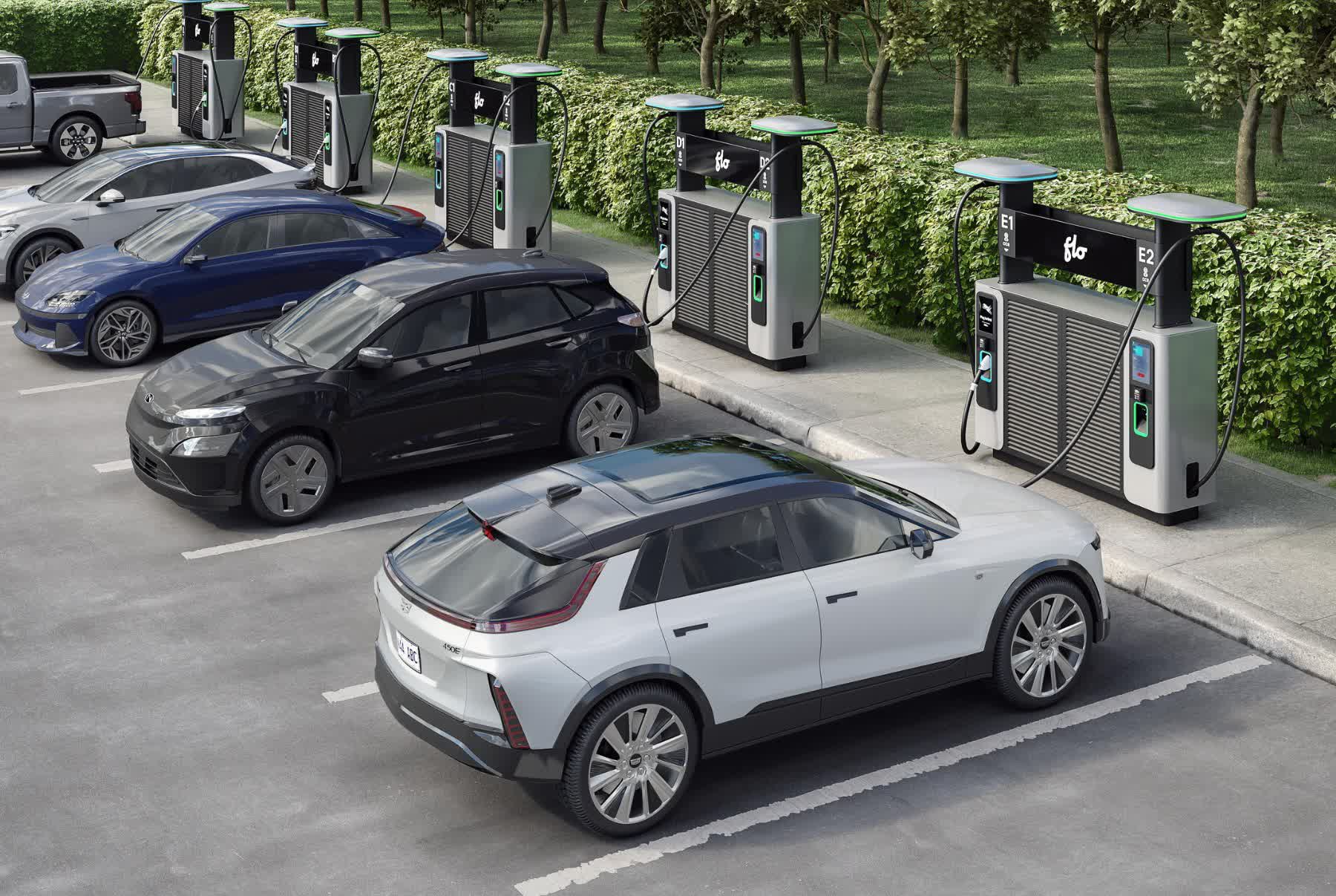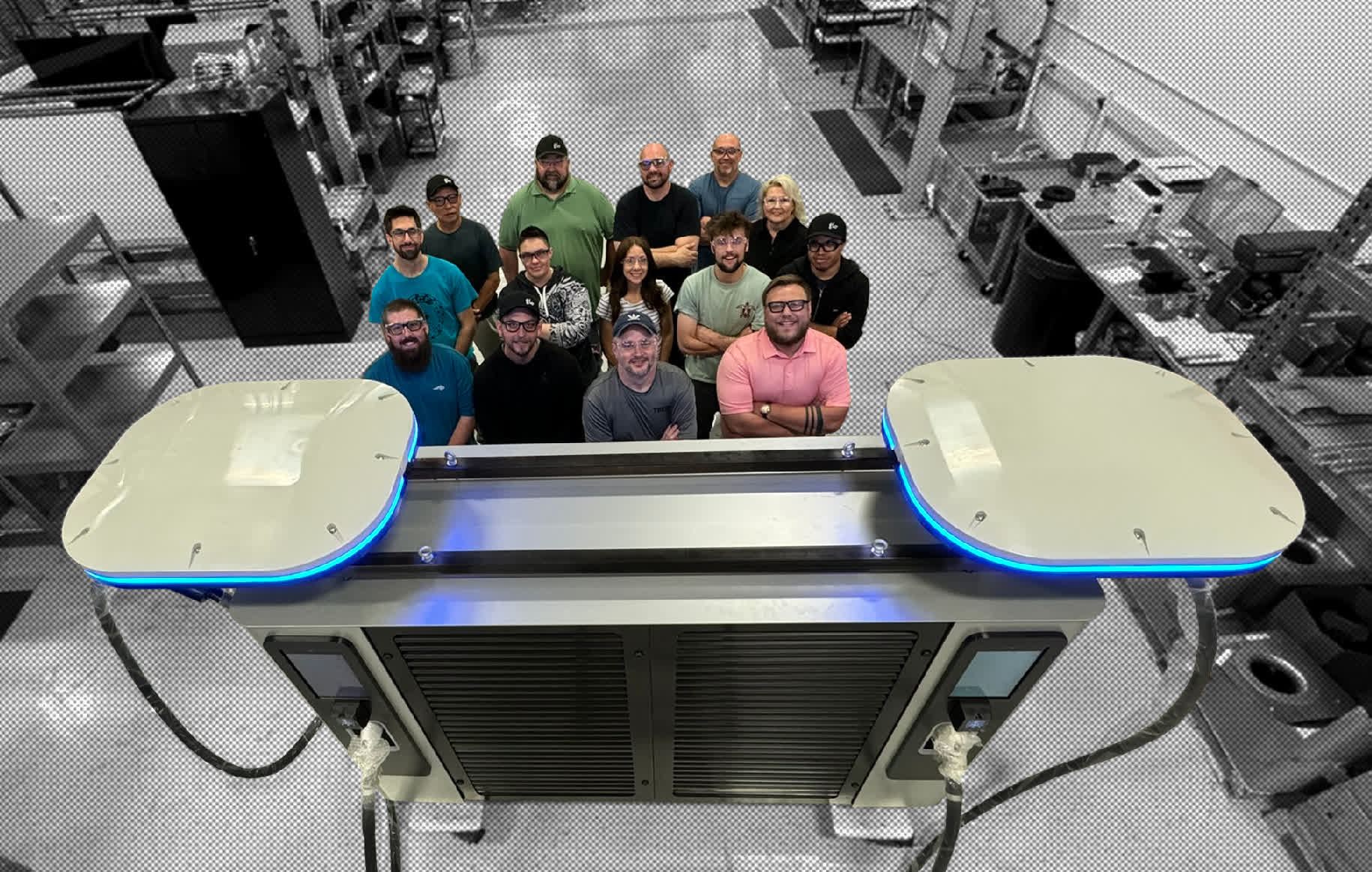Why it matters: As electric vehicles continue their surge in popularity across America, drivers are clamoring for charging solutions that can keep up with their need for speed. Enter FLO, a pioneering North American EV charging company that just rolled out its Ultra DC fast chargers from the production line in Auburn Hills, Michigan.

These charging stations pack 320kW of dual-port power, which helps EVs replenish from empty to 80% battery in just 15 minutes. FLO has also designed the chargers to comply with the stringent standards of the federal government's National Electric Vehicle Infrastructure Program (NEVI) and the Buy America Act. They promise an uptime of 98% to ensure drivers can count on finding an operational charger when they need one.
One standout design feature is FLO's innovative EZLift cable management system. The motorized lift keeps the Ultra's charging cables off the ground, providing extended reach to connect with any vehicle's charging port location. That motorization means the cables themselves feel lightweight and ultra-maneuverable.
EV charging is growing into a hotly contested arena, with startups trying to one-up each other in kilowatts even if cars don't yet support such blistering speeds. For comparison, Tesla's recently rolled-out V4 Superchargers are officially rated for 350kW, too, though their power supply is currently housed in 250 kW V3 cabinets. The company will likely upgrade this as the popularity of models with 800V architecture rises. But even with the enhanced power, Tesla's charging speeds appear slower with a 10-minute top-up adding 'only' 40% of the battery range.

At the same time, Gravity, a New York startup specializing in EV infrastructure, has opened up stations featuring 500kW chargers. These are being hailed as the fastest EV chargers in the US. While limited to Manhattan for now, Gravity hopes to expand with thousands more fast chargers each year around the US.
Still, FLO's Ultra DC fast chargers hit the market at an opportune time. A fresh Pew analysis found that 64% of US adults now live within two miles of a public EV charger, and residents with chargers nearby are more likely to consider going electric for their next vehicle purchase.
FLO is contributing to these numbers, boasting a fleet of 100,000 fast and level 2 EV charging stations deployed at public, private, and residential locations. The startup operates its network across North America with facilities in Michigan and Quebec.
"With 42% of users accessing DC fast chargers at least once a month and 60% depending on them for longer, multi-city trips, it's evident that fast charging options are vital to supporting the electric transition," said Louis Tremblay, FLO president and CEO. "At FLO, we're committed to meeting this critical need by providing robust, reliable fast charging solutions like the FLO Ultra charger. Our mission is to ensure that drivers have the power they need, whenever and wherever they need it, to confidently drive an EV."
On Tuesday, FLO secured $136 million in new capital, principally from a Series E funding round led by Export Development Canada. Those funds will help accelerate the rollout of the company's charging solutions across the continent.
FLO's new 320kW fast chargers juice EVs up to 80% in 15 minutes